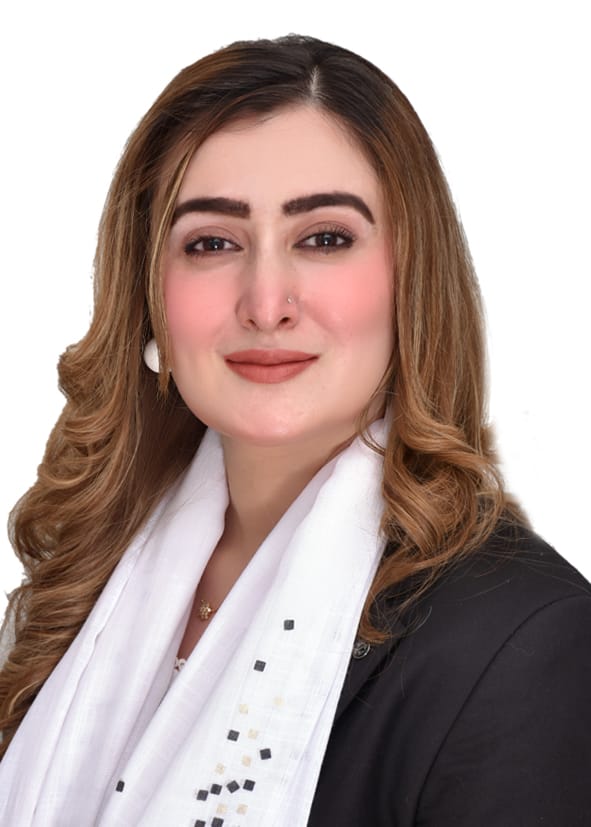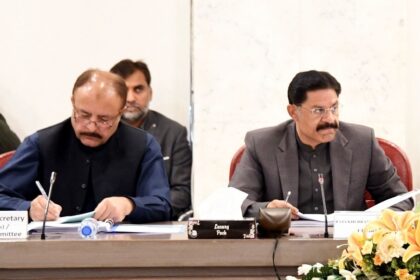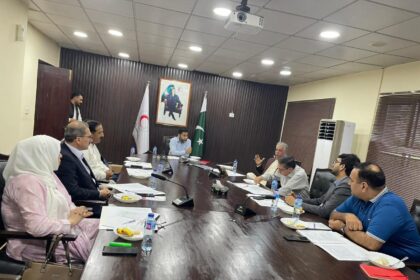Despite significant efforts and reforms, women remain markedly underrepresented in political leadership across Pakistan and South Asia. Advocate Sidra Sadozai highlights that despite constitutional provisions, reserved seats, and prominent female figures, women continue to face systemic discrimination, cultural resistance, limited financial opportunities, party biases, and persistent harassment. Achieving real political equality requires fundamental changes in societal attitudes, political party practices, governance systems, financial support, and protective legal frameworks.
Throughout history, women have stood at the forefront of movements seeking democracy, justice, and progressive change in nations like Pakistan. Yet, their actual participation in political power remains largely symbolic, limited and frequently marginalized. Advocate Sidra Sadozai stresses the significant gap that still exists between constitutional guarantees and genuine representation in decision-making positions. While reserved seats and the rise of high-profile women leaders signal progress, these measures often fall short of addressing deeply rooted cultural and structural barriers.
Social and cultural opposition remains a substantial hurdle for female participation in politics. In countries such as Pakistan, politics continues to be widely perceived as a “male domain,” effectively marginalizing women’s aspirations toward leadership. Women who venture into political arenas frequently face stigma, mockery, and accusations of violating family traditions. In conservative regions, the mere act of a woman delivering public speeches or running for office can trigger threats, backlash, family rejection, and societal isolation.
Economic hardship compounds existing challenges for women aspiring to political office. Political campaigns inevitably require significant financial resources—funds that many women, especially from middle or lower socioeconomic backgrounds, simply do not possess. Moreover, political parties often hesitate to financially support female candidates against “winnable” male competitors, further diminishing opportunities for women to effectively contest elections.
A notable shortcoming emerges from within political parties themselves, whose institutional bias consistently undermines female potential. Despite rhetorical claims, major parties rarely nominate women for general election seats, typically relegating them to roles reserved through quotas, often allocated on political rather than meritocratic grounds. Party structures seldom proactively facilitate female leadership, mentoring, or advancement—instead limiting women’s political roles to symbolic positions without meaningful influence.
Another critical factor deterring female political engagement is the alarming prevalence of harassment and violence. Women politicians regularly confront character assassination, cyber harassment, verbal abuse, physical threats, and other coercive strategies designed to silence and intimidate. Social media exacerbate these tensions, offering increased visibility but simultaneously exposing women politicians to intensified forms of cyberbullying and harassment aimed explicitly at undermining their political voice.
However, increasing women’s participation in politics is crucial—not merely for formal equality, but for the effectiveness and inclusivity of governance itself. Women legislators, research indicates, often approach policy-making collaboratively and with greater sensitivity toward social issues like education, healthcare, and child welfare. Women’s political involvement fosters inclusive governance, promotes laws protecting women’s rights, challenges entrenched patriarchal structures, and inspires future generations to embrace civic responsibilities.
Political parties play a decisive role in either enabling or obstructing women’s active political participation. Unfortunately, most parties in Pakistan lack internal democracy, leaving their women’s wings largely symbolic, voiceless entities with minimal influence over policy development. Ensuring gender parity requires institutionalizing internal party democracy, empowering women within party hierarchies, and making parties accountable through legislation and electoral commission oversight—including incentivizing female candidacies for general (non-reserved) seats.
Local governments present a significantly under-utilized channel for empowering women politically. Robust local governance provides accessible opportunities for women to directly engage with constituents, address community-specific issues, accumulate valuable political experience, and potentially gain pathways to national leadership. Unfortunately, ineffective administrative decentralization and delayed local elections have drastically limited these opportunities. Revitalizing empowered local government structures must become an essential pillar for achieving long-term gender parity in political participation.
To bridge existing gender divides in politics, Advocate Sidra Sadozai underscores the need for a multifaceted, actionable approach including:
– Strengthening women’s quotas to mandate party nominations for general election seats in addition to reserved seat quotas.
– Establishing dedicated political training initiatives to provide emerging female candidates with concrete skills in campaign management, policymaking, and leadership.
– Implementing and rigorously enforcing legislation that protects women from political harassment and violence both online and offline, coupled with robust internal complaint mechanisms within political parties.
– Encouraging and supporting independent women politicians who do not hail from established political dynasties, ensuring diverse perspectives and representation.
– Actively reshaping the public narrative through educational initiatives and media promotion of female political role models, dismantling harmful stereotypes of women in leadership positions.
In concluding her observations, Advocate Sadozai emphasizes that women’s participation in politics is not an act of charity, but a fundamental democratic imperative. True equality in political representation must reject traditional patronage networks, valuing merit over family connections, competence over conformity, and courage over restrictive customs. Only through the active dismantling of entrenched barriers and full recognition of women’s equal political status can we hope to achieve a democracy that genuinely represents and serves all people, women and men alike.











